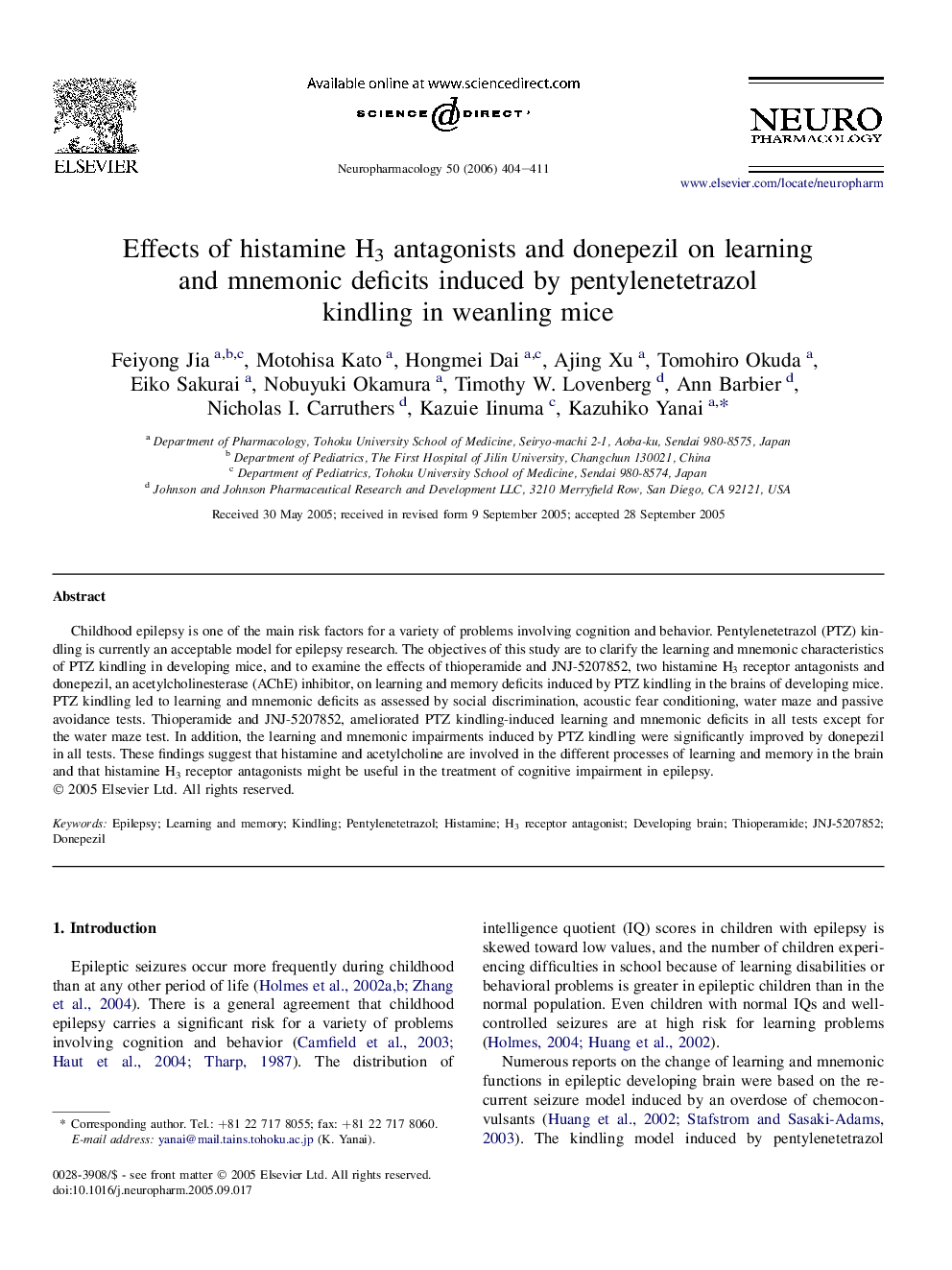| Article ID | Journal | Published Year | Pages | File Type |
|---|---|---|---|---|
| 2495216 | Neuropharmacology | 2006 | 8 Pages |
Childhood epilepsy is one of the main risk factors for a variety of problems involving cognition and behavior. Pentylenetetrazol (PTZ) kindling is currently an acceptable model for epilepsy research. The objectives of this study are to clarify the learning and mnemonic characteristics of PTZ kindling in developing mice, and to examine the effects of thioperamide and JNJ-5207852, two histamine H3 receptor antagonists and donepezil, an acetylcholinesterase (AChE) inhibitor, on learning and memory deficits induced by PTZ kindling in the brains of developing mice. PTZ kindling led to learning and mnemonic deficits as assessed by social discrimination, acoustic fear conditioning, water maze and passive avoidance tests. Thioperamide and JNJ-5207852, ameliorated PTZ kindling-induced learning and mnemonic deficits in all tests except for the water maze test. In addition, the learning and mnemonic impairments induced by PTZ kindling were significantly improved by donepezil in all tests. These findings suggest that histamine and acetylcholine are involved in the different processes of learning and memory in the brain and that histamine H3 receptor antagonists might be useful in the treatment of cognitive impairment in epilepsy.
